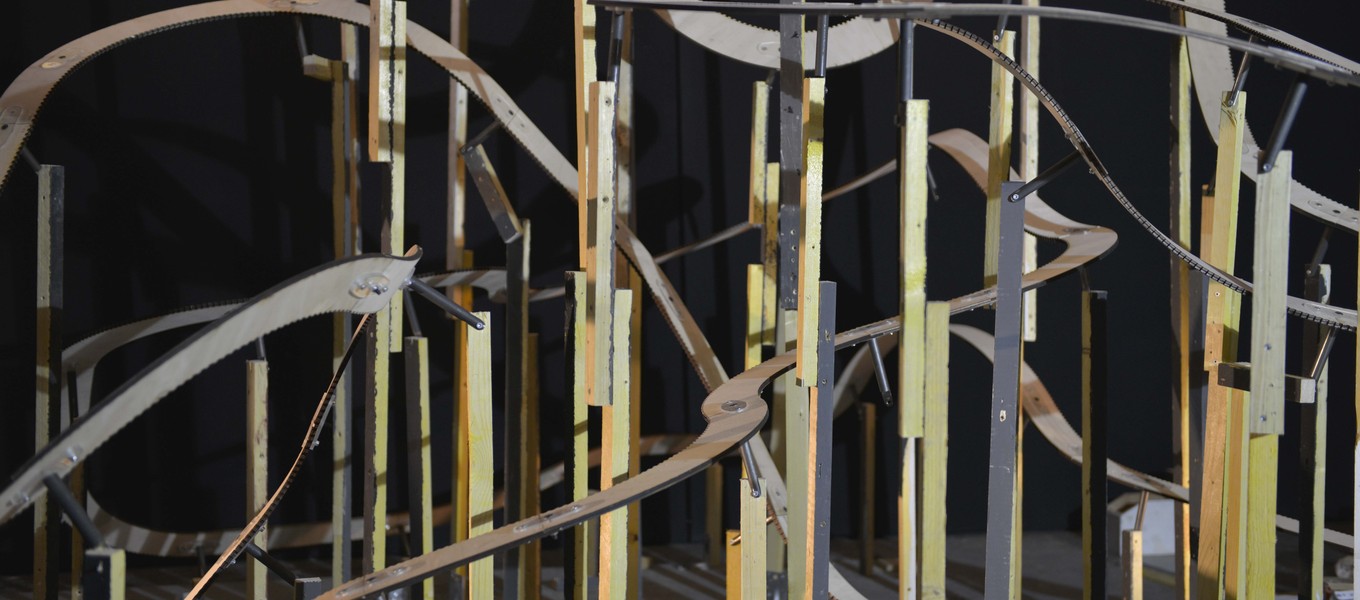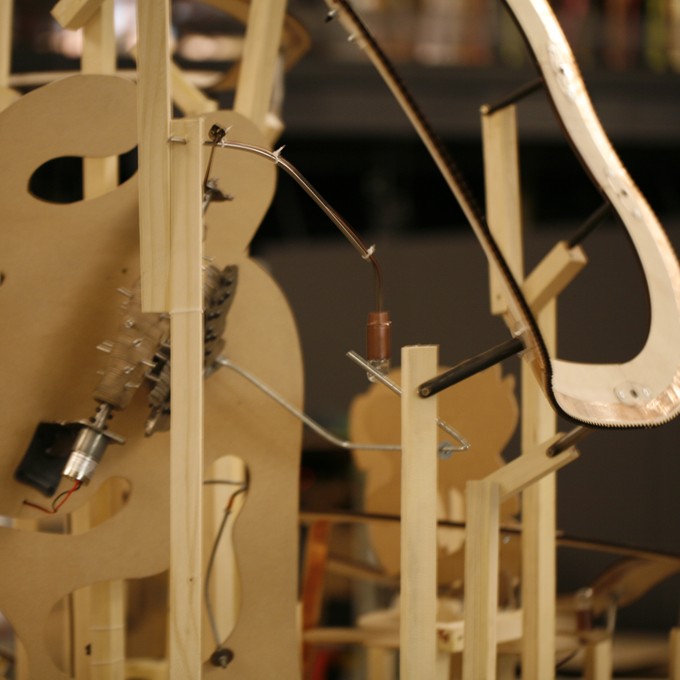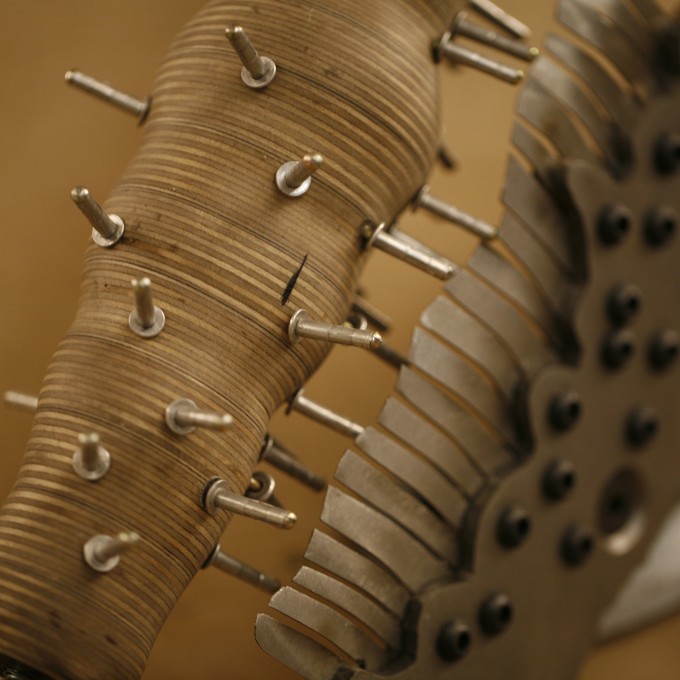Léonard Martin
Echappée guère / (Portrait de Dédale en fichènchip) - Installation - 2017
présentée dans le cadre de l'exposition panorama 19



Installation
Six seems to be the ideal number by which to
invite the spectators – or sixtators – to combine
their twelve vigilant eyes on the twists and turns
of a labyrinth.
Three circuits for twelve; being four eyes per
circuit, enough to stupefy Google Glass or this
fearsome camera with nine eyes that strikes
and watches, omniscient, right to the edges of
the last sacred forests. Because there where the
undertaking of the deforestation of imagination
each day takes over more ground, Daedalus
makes luxuriant flowering paths grow, where the
last look-outs, high up in their crow’s nest, point
out the reef or the drifting raft.
There is a spectre-tator, a (s)talker who draws
our footsteps to his. He has the nicknames of
Jim, Giacomo, Jiji l’Amoroso or J.J., also known
as James Joyce. His path is full of obstacles. He
is not easy to follow: traps and brawls. Certain
people still dare to go out into the streets of
Dublin, where his spirit continues to strike.
Daedalus has constructed his business so well
that it seems impossible to escape it without
burning his wings. No vanishing point, no
perspective, for he who, so it’s said, takes the
step across allowing statuary to come alive.
But the railings, like those who hold them, may
be a sheet of paper, Joyce of madness. The
ramparts hide the bastard child, the hybrid, the
monstrous, like our conscience, which summons
up its courage so as to not give way beneath the
intrigues of the depths.
The thread that unwinds here tries to become
a pointsman, the station chief, or the chief of
considerations, of those who have barely escaped
it. Only foundations, breaks, frameworks find
themselves on the margin, on the verge; those
who conjure up the vanishing point, who migrate,
who deport, who transport themselves. Hardly
less, Icarus and Minotaur simultaneously.
For these desiring bodies, Daedalus invented the
ship, vessel and crockery all at once, hence in a
collapse of words hatred, chips, ship and cheap
land. This fishinship is a haddock brainwave
which intends to abandon itself to its transport;
a ship whose sail is blown out by the thousands
of voices of languages not yet signposted with
arrows. Stephen will be the hero who will sing
all the dissonances. There will always be enough
mermaids captured to silence the hum of the world.
Léonard Martin
Lives and works in Paris and Lille. He graduated with a distinction from the Ecole des Beaux-Arts in Paris where he trained in François Boisrond's studio. He participated in the 61st Salon de Montrouge. His first encounter with film was motivated by his desire to see the animation of painted forms. Not that these figures were unfamiliar with movement, the history of painting has constantly set the body in movement, but rather that these figures were waiting for a scheme, a device that would resuscitate them, for a mechanism to disrupt time. Image by image, cinema as the site of anima would appear to be ideal for such metamorphosis to take place.
In more recent works, Léonard has used string puppets with a view to extending the very first moments of awakening, of birth, and the indeterminate and incipient aspects of movement.
